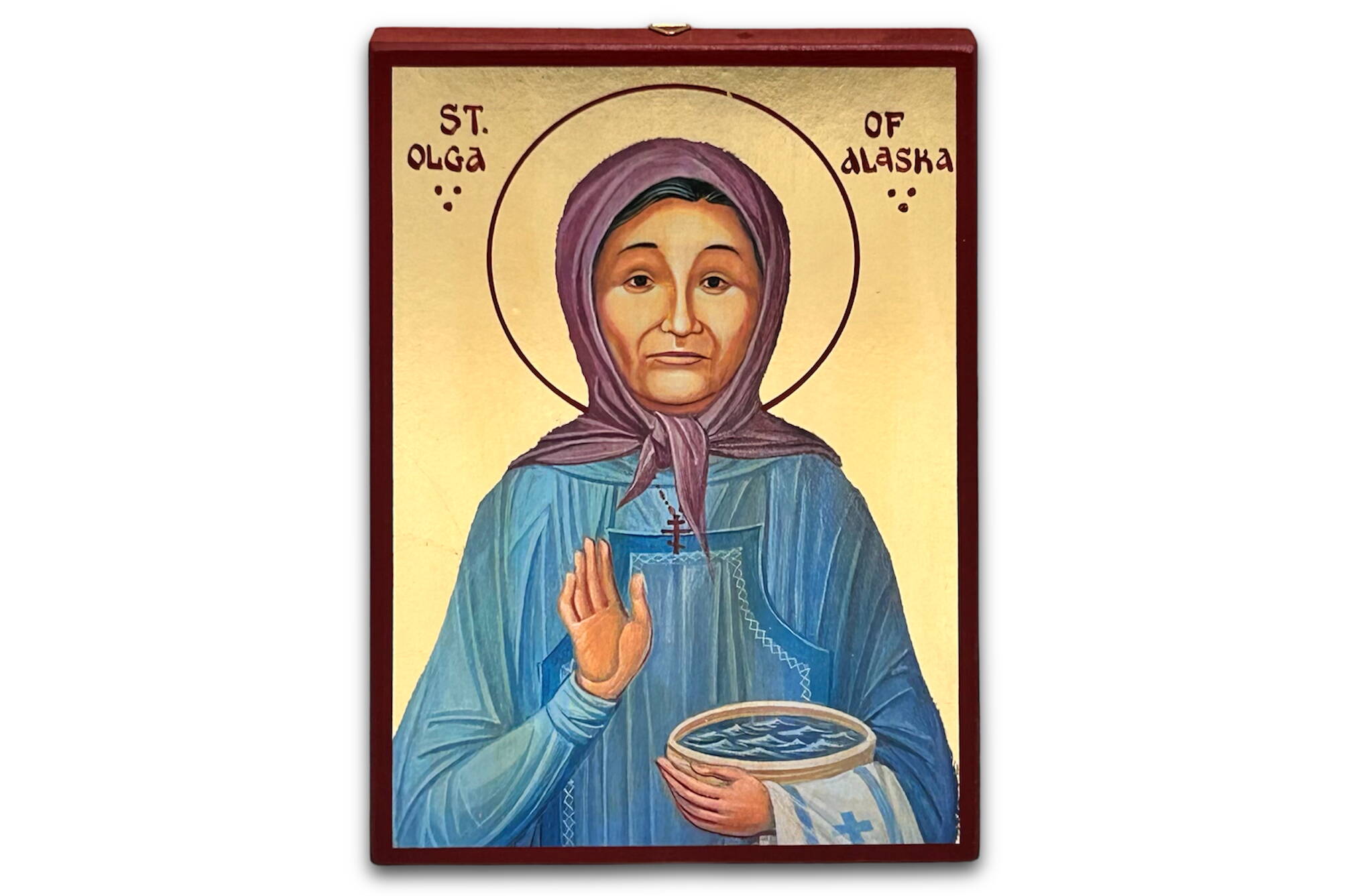“God is wonderful in His saints: the God of Israel is He who will give power and strength to His people.” So proclaims the Psalmist in Psalm 68:35, and so Christ’s Church continues to proclaim in the veneration of His holy ones who flower forth with the beauty of the life of God in every generation.
This past November, the Orthodox Church in Alaska received the blessed news that another one of her own native flowers has been universally recognized as one of those God-bearing persons: Matushka Olga Michael, a Yup’ik woman from Kwethluk, known by the pious peoples of the Kuskokwim as Arrsamquq.
Matushka Olga was the wife of Archpriest Nicolai Michael, the village postmaster and manager of the general store in Kwethluk. She was the mother of 13 children, eight of whom survived. She was a midwife, and led a quiet life of care for others, known especially for her care for the poor. Though poor herself, she was known for constantly making shoes and clothing for those in need, in her own village and in other more distant villages. She instructed her children to not say anything when they saw others wearing their clothing, as she would often give away her own family’s clothes to those who had need.
In her life, she would frequently be the first to know that a new mother was with child, before even the mother herself knew that she was expecting. She has continued to assist mothers and midwives in childbirth, even after her death.
She was herself a victim of trauma and abuse; and she is known as one who brings comfort and healing to those who have suffered from abuse. In one instance since her repose, she came in a dream to a New York woman who had suffered great abuse and who at the time had no awareness of who Matushka Olga was. In the dream, Matushka Olga invited the woman into her hut, where she worked healing upon her. She then shared tea with her as they observed the Northern Lights flashing in the sky, and Matushka Olga spoke to her: “The moving curtain of light was to be for us a promise that God can create great beauty from complete desolation and nothingness.”
The saints are a testimony to us of God’s goodness from generation to generation: that he always and everywhere wishes to make His abode within the human heart, to make that heart a home for all peoples.
We see this so clearly with Matushka Olga. When the Gospel was first proclaimed to the First Peoples of Alaska by the Russian Orthodox missionaries, it was as fulfillment of the precious culture and way of life of the First Peoples. The Gospel was understood by them as the completion of their own rich natural and spiritual understanding, steeped as it was in deep respect for a Spiritual Being and care for the creation, both spiritual and material. These cultures and peoples readily embraced the revelation of a supreme Spiritual Being as the Triune God, and were baptized and brought into the Church, with the Scriptures, prayers, and hymns expressed in new sonorities through the culture and language of the First Peoples who had received and given themselves to Christ.
As it was with the peoples, so it was and is with each person. Matushka Olga’s skill in midwifery, along with her quiet and kind personal disposition, are the vehicle in which Christ was born and took on flesh in her. Becoming more like Christ in her self-giving love and service to others, she became also more truly herself, more truly a real person, that which all humans are called to be (which is the meaning of the word Yup’ik, just as it is the meaning of Tlingit).
This is the call Christ gives to all people. All are called to be saints, to shine with the light of the glory of the Holy Trinity, to become like to the true man Jesus Christ, in whose image we all are made. As we, like Matushka Olga, say yes to God by saying yes to others, by making our lives into a prayer, God gives His strength and his power for these labors and shows that He is truly wonderful in His saints.
• Maxim Gibson is the rector at St. Nicholas Russian Orthodox Church in Juneau. “Living & Growing” is a weekly column written by different authors and submitted by local clergy and spiritual leaders. It appears every Saturday on the Juneau Empire’s Faith page.

